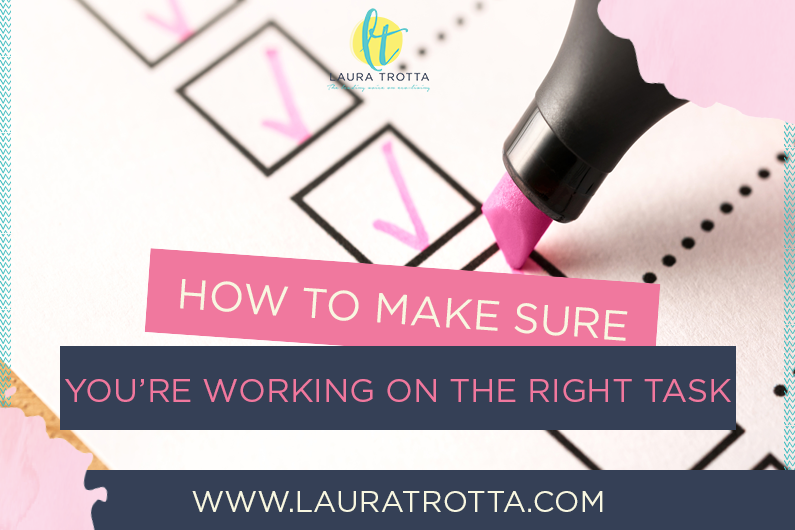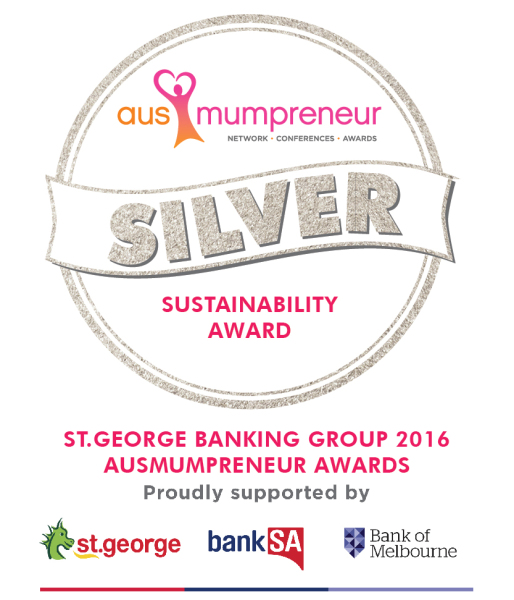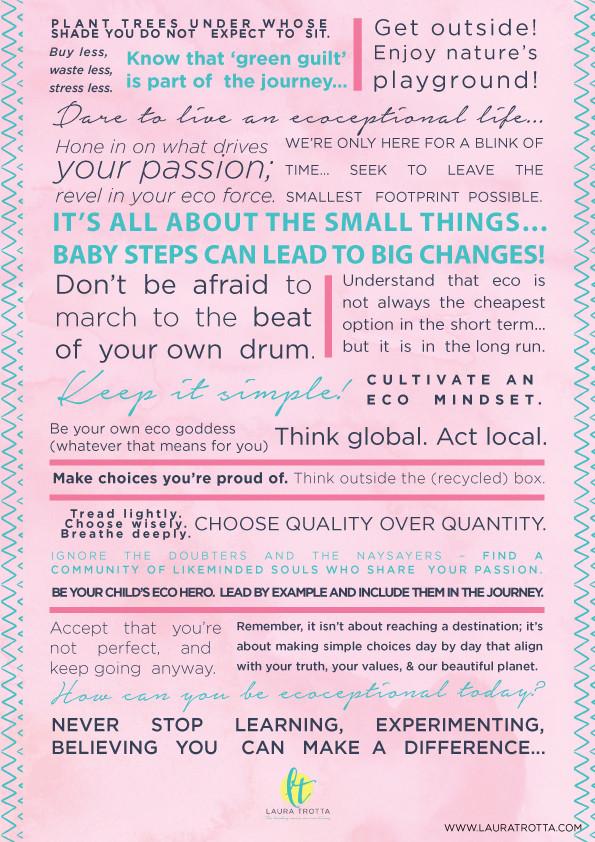A Lesson in Value-Added Tasks
If your business to-do list is a mile long and you’re unclear of the best task for you to complete first, this episode is for you.
In this episode I share where you should focus your efforts in your business in order for it to grow and what to do with the less-important tasks that still need to get done.
If you’re ready for personalised support to help your conscious business make a bigger impact, book your Conscious Coaching Taster with me or apply to join my Conscious Business Circle today!
Podcast: Play In New Window
There’s always tasks to complete in business. An email to respond to, social media post to create, client to serve, course to finish, system to update. The list goes on! But our time to complete this infinite list is finite.
As educators, experts, consultants and most likely solopreneurs, it’s no surprise that many of us can feel overwhelmed, and even downright confused, when it comes to choosing where to work on what particular day in our conscious businesses.
Do we chase leads, build automated funnels, record a live video in social media or snap up a podcast episode, or get started on creating that new course that’s in our heads?
Where is the most effective place to focus?
When we don’t have a clear path forward in our business, and by that I mean a clear business plan with very clear goals and quarterly targets (and this doesn’t need to be sophisticated), it’s easy to get lost and unsure of the best place to focus.
When I get overwhelmed my go-to is to create content, but is that really the best place for me to be spending my time when my evergreen funnels for some of my offerings are not finalised?
Creating content (like this podcast episode) is my happy place, and does add value in my business, but it’s not the most important task for me to do in my business.
The most important tasks in my business (and in your business too) are value-added tasks.
Everything we do in our businesses, either adds value or does not add value to our clients and customers. Knowing if the tasks we’re working on are value-added, value-enabling or non-value added helps us in our decision to continue to allocate time and resources to the task.
Who determines the value of a task? The customer does.
Let me explain further…
It was during my two years working as a senior engineer in a Lean SixSigma capacity with BHP where I learnt all about business improvement principles. It was through the process of leading multi-million improvement projects at the largest industrial site in Australia where I became very familiar with the different types of tasks in business, and the impact that focussing on the wrong task could have. When I started my own conscious business in 2009, I took this knowledge with me and ran my business as efficiently as possible. These days I love passing on the principles to my business coaching clients.
What Are The Different Types of Tasks?
When it comes to business, not all tasks were created equal. Some tasks result in direct value to your customer. Others result in direct value to your business by building systems and improving efficiencies over time.
A simple way to classify tasks is using the Lean SixSigma definitions of value. By classifying tasks according to value, it is easier to determine where to best focus your efforts.
1. Value-Added Tasks
Value-added tasks are tasks that customers, if directly asked, would be willing to pay for.
Some examples of value-adding tasks include:
- Delivery of business coaching session to client
- Delivery of training material to client (eg. online course, live workshop)
- Customer receiving delivery of goods purchased online
There may be many steps and tasks involved in the delivery of these products or services, but the task that the client or customer would be willing to pay for in these examples is receiving the product or service. It’s the most important task.
Not all value-added tasks need to be performed by you in your business. For example, the customer doesn’t need to receive a personal delivery by you from the physical products they’ve purchased from you online, but you do need to be aware that the customer prioritises that task above all the other steps in the process, so you want to make sure it’s as seamless an experience for them as possible.
2. Value-Enabling Tasks
Value-enabling tasks are those deemed necessary for the product or service to be delivered but are not directly valuable for the customer.
Some examples of value-enabling tasks include:
- Packing an online order of goods
- Unpacking wholesale stock and receipting it into your business inventory system
- Writing and filming your online course
- Strategy call / sales call with a business coaching lead
- Setting up sales funnels for online education products
- Setting up and monitoring performance of Facebook Ads
- Recording and transcribing podcasts
- Writing and publishing blog posts
- Building a social media following
3. Non-Value Added Tasks
Tasks that do not fall into the value-added or value-enabling categories are classified as non-value added tasks. They add no value whatsoever to the customer.
Some examples of non-value added tasks include:
- Social media scrolling
- Filing emails
How to Choose Which Tasks to Prioritise?
When it comes to choosing where to focus efforts in your business on any particular day or week, it pays to consider if the task is value adding or value enabling and whether or not the task specifically needs to be completed by you.
If the task is value-adding and requires you to complete it, that task is of the highest priority. An example of this type of task in my business is my business coaching sessions with my Conscious Business Circle members. I can’t delegate that service to anyone else in my business.
But what about all the other tasks on the to-do list? Surely they’re important too?
Value-enabling tasks that must be completed by you also take precedence, but not at the expense of value-adding tasks. An example of this type of task in my business is recording a Conscious Business Builders podcast episode.
What To Do With Value-Enabling and Non-Value Added Tasks
There will surely be other important tasks that need to be undertaken regularly in your business, but they fall outside the ‘value-adding and must be completed by you’ category. For these tasks, it pays to put them all under a virtual microscope and determine if they can be deleted, automated or delegated.
If the task is not adding value to the customer or your business, it should be deleted.
If the task is value-enabling but does not need to be completed by you can it be delegated or automated in any way? Can you install an automatic booking system for clients to book in directly with you rather than having emails go back and forth? Can you employ a Virtual Assistant to keep on top of your inbox and customer enquiries?
An example of this type of task in my business is podcast editing and uploading. It’s a value-enabling task, is integral to my lead capture system, is necessary for my business to grow, but does not need to be completed by me.
Final Thoughts
When determining which tasks to prioritise in your business to ensure the most effective use of your time, classify them as either value-adding, value-enabling or non-value adding and then question if the task must only be completed by you. By automating, delegating or eliminating tasks continually, your business with become more efficient over time, be able to serve more clients and customers and make a bigger impact as a result.
Over To You!
What are the value-adding tasks in your business?
What tasks in your business can you automate, delegate or delete today to set you up for growth, and a bigger impact, tomorrow?
Share below!
If you’re ready for personalised support to help your conscious business make a bigger impact, book your Conscious Coaching Taster with me or apply to join my Conscious Business Circle today!
For more strategies and support to help you grow your impact-driven business online, join my FREE Conscious Biz Creators Facebook Community.
- Sustainable Home Design- factors to consider to maximise sustainability - July 28, 2022
- Advantage and Disadvantages of Tiny Houses - May 31, 2022
- How School Strike 4 Climate is Empowering Youth to Fight for Their Future - May 1, 2022



 Laura Trotta is one of Australia’s leading home sustainability experts. She has a Bachelor of Environmental Engineering, a Masters of Science (in Environmental Chemistry) and spent 11 years working as an environmental professional before creating her first online eco business, Sustainababy, in 2009. She has won numerous regional and national awards for her fresh and inspiring take on living an ‘ecoceptional’ life (including most recently winning the Brand South Australia Flinders University Education Award (2015) for the north-west region in SA and silver in the Eco-friendly category of the 2015 Ausmumpreneur Awards). With a regular segment on ABC Radio and with her work featured in publications like Nurture Parenting and My Child Magazine, Laura is an eco thought leader who’s not afraid to challenge the status quo. A passionate believer in addressing the small things to achieve big change, and protecting the planet in practical ways, Laura lives with her husband and two sons in outback South Australia.
Laura Trotta is one of Australia’s leading home sustainability experts. She has a Bachelor of Environmental Engineering, a Masters of Science (in Environmental Chemistry) and spent 11 years working as an environmental professional before creating her first online eco business, Sustainababy, in 2009. She has won numerous regional and national awards for her fresh and inspiring take on living an ‘ecoceptional’ life (including most recently winning the Brand South Australia Flinders University Education Award (2015) for the north-west region in SA and silver in the Eco-friendly category of the 2015 Ausmumpreneur Awards). With a regular segment on ABC Radio and with her work featured in publications like Nurture Parenting and My Child Magazine, Laura is an eco thought leader who’s not afraid to challenge the status quo. A passionate believer in addressing the small things to achieve big change, and protecting the planet in practical ways, Laura lives with her husband and two sons in outback South Australia. 


